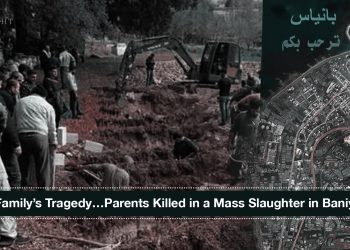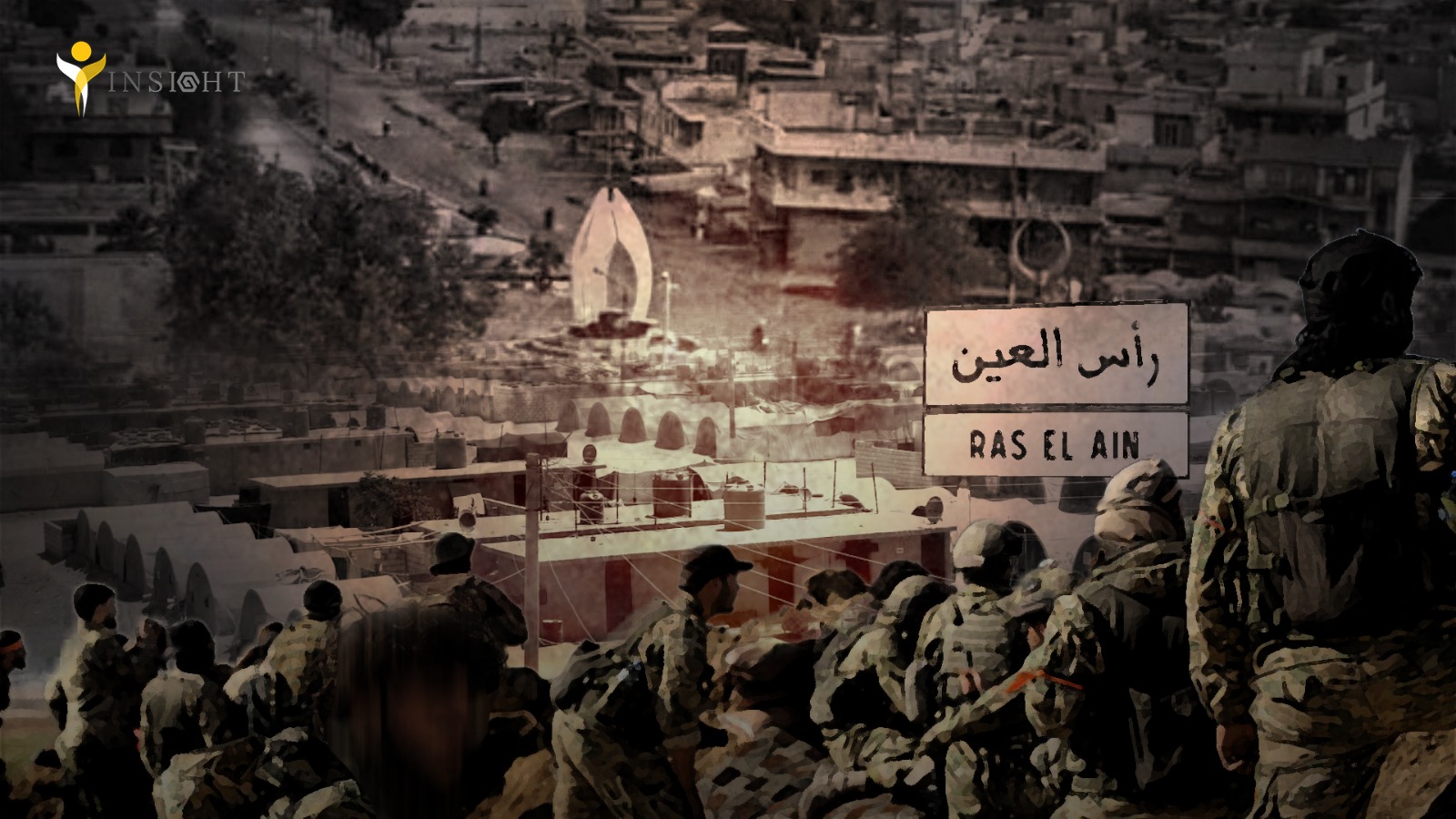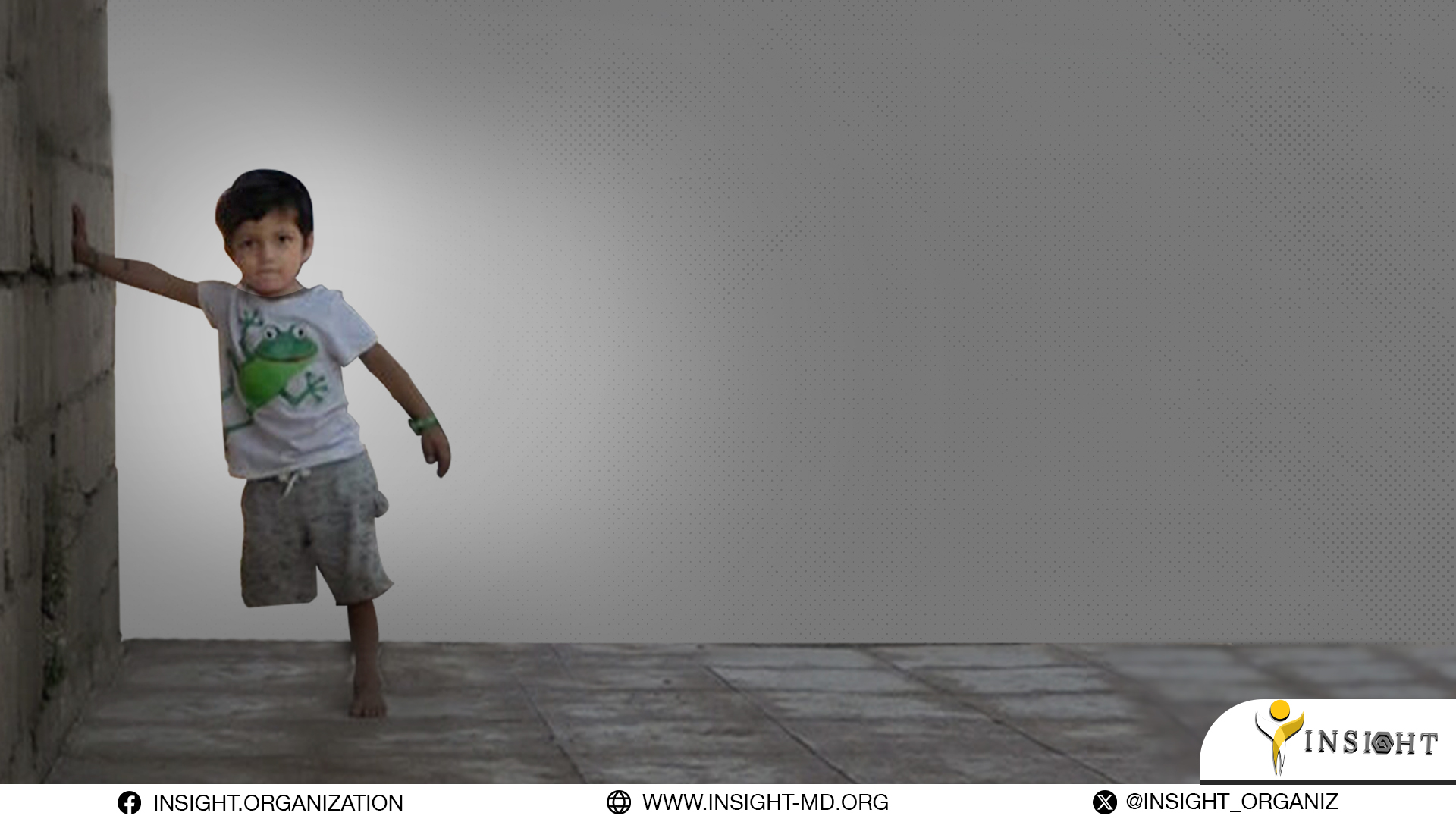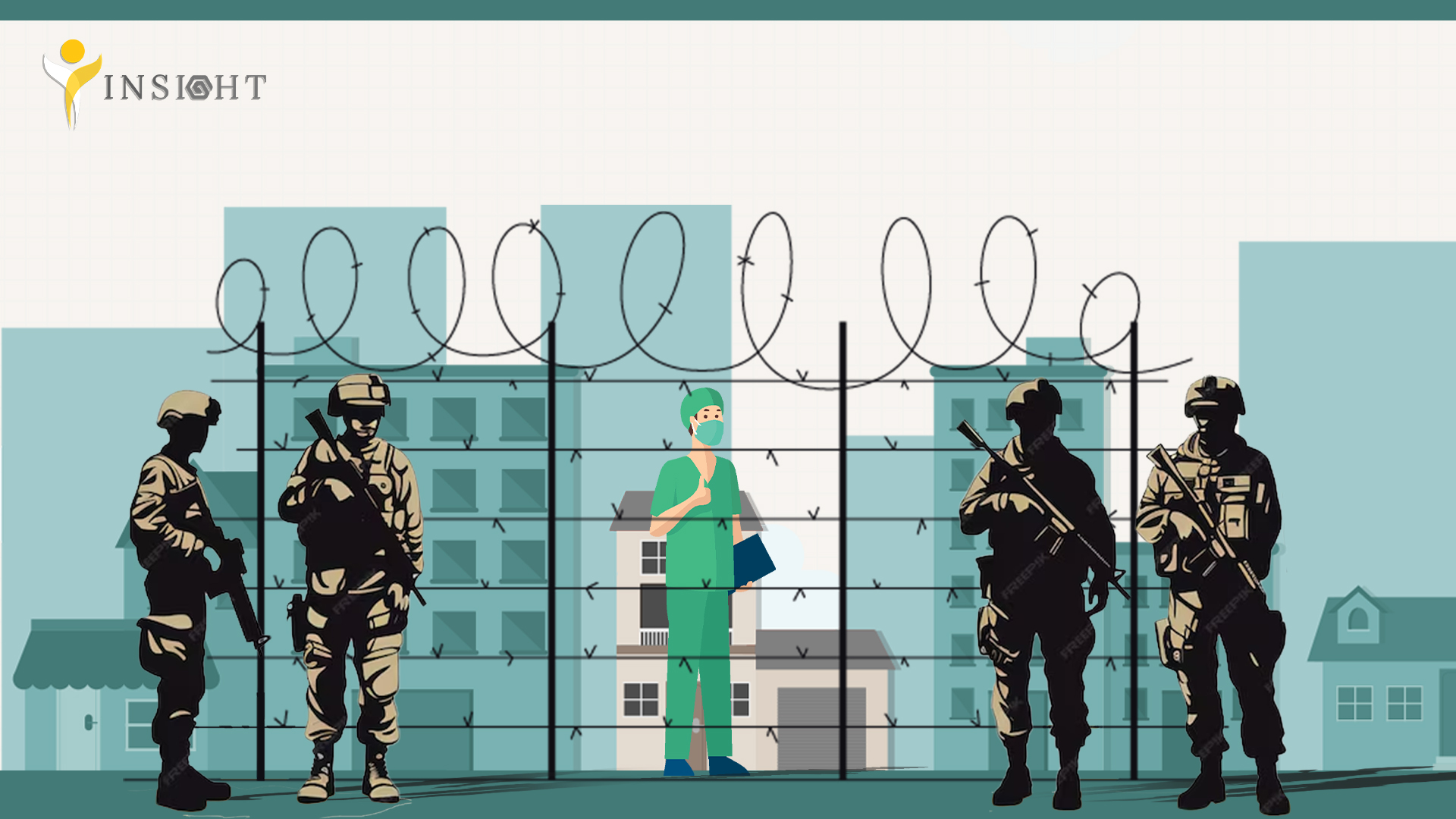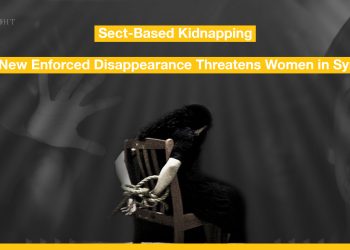This case study shows the condition of four displaced women workers in the Turkish shelling on north Syria, and discusses the responsibility for threatening their lives and work after causing the displacement of their families, due to Turkey’s continuing indiscriminate attacks that do not distinguish between military objectives and civilian objects.
What legal responsibilities has Turkey violated by targeting those women workers and their workplace? How can these women workers and their families continue to live without threat? Who is responsible for stopping the attacks against them?
Attacks against civilians
Ghazala Hanif Ibi,40, mother of four children and displaced from Sere Kaniye in 2019, finished washing the fabric cover for cheeses, moments before a Turkish war plane shelled Zozan dairy factory in Derik, far northeast Syria.
Ghazala described that Saturday, October 26th: “it was a normal day and there were no sounds of Turkish planes”, which shortly shelled and injured four workers at the factory, two of whom were under 18.
Yusra, another women worker, had prepared the covers of the yoghurt pails, when the others headed to the entrance, outside the building, waiting for the milk shipment.
Ghazala said: “some of them were standing outside, next to the fridges, and others were the in the entrance, near the restrooms, when a war plane came and hit the factory with two strikes and left”.
She added: “Aheen, Yusra, and me were hit by shrapnels, and Amal was hit in her foot because the door fell on her.”
In that day, the Turkish drones injured four displaced women workers at Zozan dairy factory in Derik. And the women were: Ghazala Hanif Ibi (40), Yusra Abdul Hayi (17), Amal Mohammed Issa (14) and Aheen, who were hit by shrapnel, according to her colleagues.
Turkey ignored the International Humanitarian Law in its attacks on north Syria from October 23 to 26, including the principle of distinction between civilian objects and military objectives.
Instead of taking precautions to avoid injuring civilians and protecting their homes and workplaces, the Turkish forces have injured displaced women workers and threatened their lives. It also pushed them to stop working and thinking of migrating.
Customary International Humanitarian Law stipulate in rule 15 that: “In the conduct of military operations, constant care must be taken to spare the civilian population, civilians and civilian objects. All feasible precautions must be taken to avoid, and in any event to minimize, incidental loss of civilian life, injury to civilians and damage to civilian objects.”
Turkey started its attacks three days before targeting the factory, and declared them as a response to a [PKK] attack in Ankara, as Turkey consider the Autonomous Administration of Northeast Syria an extension of the prohibited party in Turkey. However, the women workers in Derik said there was no indication or justification for targeting their workplace.
Injuries and Panic
The tasks of the 10 women workers were: preparing the cheese, milk, and cocktail products to be sold in the markets of the AANES areas. The markets that lack local products, even though the area is known for being agricultural and rich in raw materials.
Amal, another injured women worker, said that she cleaned the milk tank and then walked out towards the gate to pick up the milk and bring it into the factory, when the shelling began and the gate fell on her.
Yusra said that she was putting the production dates posters on the milk pail lid, when the supervisor walked outside to tell the manager about the delayed milk shipment that day, “and the women workers went out for the sun, it was cold inside.”
She continued: “I arranged the pails, went out from the fermentation room and closed the door, I did not even arrive to the machines when the war plane hit the factory.”
The pressure of the explosion threw Yusra away, she fainted for few minutes, and when she sat she saw her foot injured and bleeding.
Yusra also said: “there were noises from the machines…. I was afraid that something would explode within them.”
But she was not able to walk because of her injured foot and the panic in those moments, so she crawled to the gate and the other workers took her out to the hospital.
Ghazala was injured with a metal shrapnel in her back and she checked out from the hospital on the same day, “about a week later the injury part is still swollen.”
She described the incident: “each women worker fell where she was and some of us were injured with shrapnels, Aheen was injured in her back and abdomen, and I was injured in my back.”
The workers at the factory –managers and drivers – took the injured women with their cars to the hospital, “that was faster than calling the ambulance” according to Ghazala who thanked God that no one was killed.
Ghazala said “other women workers were shivering with fear, and asked to be taken home. Sidra had a panic attack and fell on the ground.”
Insight organization documented the killing of 14 persons in their homes, at their works and in refugee camps, and the killing of 4 members of Internal Security Forces at their positions and on roadblocks, who were all killed by the Turkish attacks from October 23 to 26.
48 civilians and 14 military and Internal Security Forces members were injured, amid continuing concerns during their treatment over constant strikes on health centers and civilians, who volunteered to take the injured to hospitals.
In four days, the Turkish forces hit 137 residential areas with hundreds of military attacks, including a displaced persons’ camp, resulting in total or partial destruction of the homes of civilians who considered remaining inside their homes and tents the safest act during the shelling.
The Turkish attacks targeted infrastructure and public and private economic facilities in the region, which have not yet been restored from long-term repercussions of the destruction caused by Turkey’s previous attacks at the end of 2023 and the beginning of 2024.
Article 51 of Annex I (Additional Protocol) to the 1977 Geneva Conventions stipulates: “The civilian population as such, as well as individual civilians, shall not be the object of attack. Acts or threats of violence the primary purpose of which is to spread terror among the civilian population are prohibited.”
The documentations gathered by Insight during the four days of the attacks and crossing it with Turkish statements, confirm that Turkey has committed violations with factors classified as war crimes and crimes against humanity, according to international laws, customs and conventions such as International Humanitarian Law, Customary International Humanitarian Law, the Geneva Convention of 1949 and its Additional Protocols.
They were Victims Before
The injured women workers hail from Sere Kaniye, which was controlled by Turkish forces and its affiliated ‘National Army’ factions in autumn 2019, causing them to flee to the countryside of Hasakah and subsequently settle in Newroz camp in Derik countryside.
Ghazala recalled the day of October 9 of 2019, she was spreading laundry on the roof of her home in Sere Kaniye, when Turkish planes began shelling the city causing her family’s displacement.
Her husband left all his belongings, including his telephone shop. At those moments, his only concern was rescuing his children and family members. But he took with him the documents of ownership of his house, which is currently inhabited by Turkish members, according to Ghazala, who later contacted some of the neighborhood’s remaining residents.
The family moved towards neighboring Tal Tamer and then temporary shelters near Hasakah. One year later, the family moved to Newroz camp in Derik countryside.
Her husband rented a shop in Derik city, but left it because of the high rent. He then worked in selling vegetables, until an organization helped him to open a new phone shop as he cannot work in strenuous works because he is disabled.
Ghazala said that she started working at the factory since early March, “it was a good job for me. I used to boil milk, coagulate it and prepare cheese. The managers and supervisors treated us well and I was comfortable.”
She added: “my husband provides the basics for our children, but his salary is not enough. If they need shoes or clothes, I contribute in buying them.”
Yusra recalled the days when she and her sisters would help their mother in sewing women’s clothes, and the few times when they were temporarily displaced outside their city and then returned when it was calm.
“My father was in Lebanon working in in the gardens. The night when the Turkish shelling on Sere Kaniye started, we stayed awake until the morning. We heard that they intended to enter the city, so we left our home, shop, fabrics, machines and everything.”
Yusra’s family moved from one village to another until they found transportation to Hasakah, where they were hosted by a family of acquaintances for a month. Then, they came to Newroz camp in Derik as they were not received at Washukani camp in Hasakah countryside.
She said: “Now, the wound bleeds again if I stand on my feet, I borrowed a crutch from our neighbor and I try not to press on the injury.”
Three days after the shelling, the factory’s management contacted the workers for cleaning and returning to work, but Ghazala apologized because she was still in pain due to the injury.
Ghazala said: “certainly, we are still afraid. Whenever we hear a loud sound, we imagine the plane striking… But we have no other option. I will go back to my job.”


